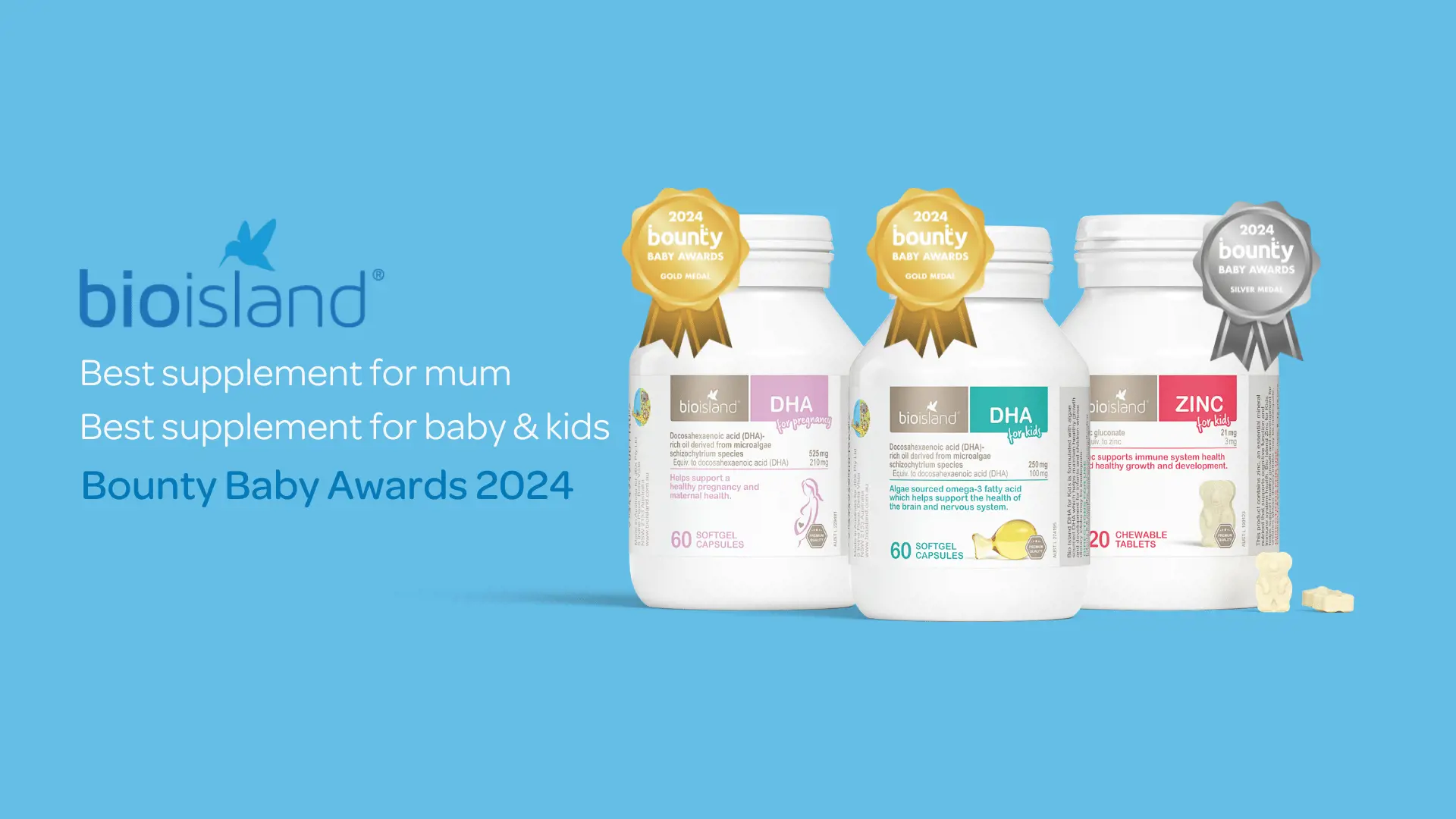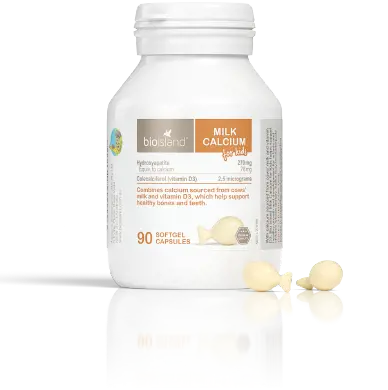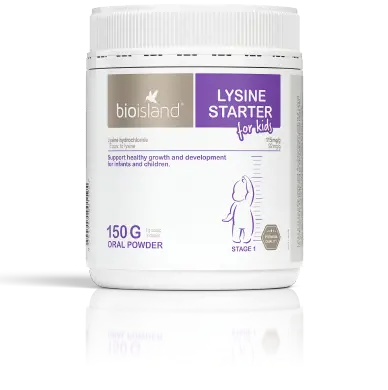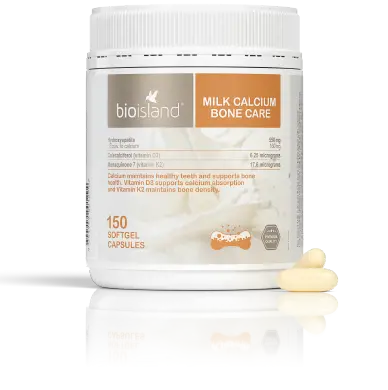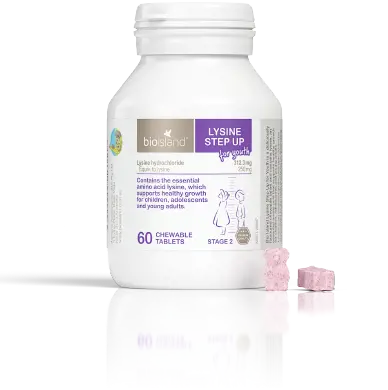
Calcium, bones and beyond
Calcium is best known for its role in the development and maintenance of healthy bones and teeth, but this amazing mineral is also responsible for numerous other essential metabolic functions.
Health Support
By Bio Island Nutrition Team
WHAT IS CALCIUM AND WHAT ROLE DOES IT PLAY IN OUR BODIES?
Calcium is best known for its role in the development and maintenance of healthy bones and teeth, but this amazing mineral is also responsible for numerous other essential metabolic functions such as:
- Muscle contraction
- Nerve signalling
- Blood pressure regulation
- Assisting in the release of hormones
In fact, calcium is the most abundant nutrient in the human body and enables our cell membranes to remain stable, assists in the process of blood clotting and is also the reason our bones are visible on an X-ray.
Calcium is of significant importance from birth through to puberty when it increases sevenfold to keep up with the demands of a growing body. Low intakes of this essential mineral are associated with an increased risk of bone fracture and the development of osteoporosis later in life.
Ensuring that we consume adequate intake during childhood and into adulthood will provide our bodies with more stable bone mass as we get older. This in turn may reduce the risk of osteoporosis and risk fractures later in life. As we age, we start to lose bone mass making it equally as important to maintain sufficient calcium levels throughout our older years as the body stores its calcium reserves in the skeleton.
WHAT IS THE RECOMMENDED DAILY INTAKE (RDI)?
Within Australia, the following Recommended Daily Intakes have been set for calcium based on age and gender.
|
Infants |
0-6 months |
210mg/day |
|
Infants |
7 – 12 months |
270mg/day |
|
Boys & Girls |
1-3 years |
500mg/day |
|
Boys & Girls |
4-8 years |
700mg/day |
|
Boys & Girls |
9-11 years |
1000mg/day |
|
Boys & Girls |
12-18 years |
1300mg/day |
|
Men |
19-70 years |
1000mg/day |
|
Women |
19-50 years |
1000mg/day |
|
Women |
51 – 70 years |
1300mg/day |
|
Men & Women |
>70 years |
1300mg/day |
|
Pregnant & Lactating Women |
14-18 years |
1300mg/day |
|
Pregnant & Lactating Women |
19-50 years |
1000mg/day |
HOW DO I GET CALCIUM? WHICH FOODS ARE HIGH IN CALCIUM?
Calcium is predominantly found in milk and milk-based foods with smaller amounts also found in small fish, legumes, nuts, and fortified foods although absorption depends on several factors including age, lifestyle, illness and diet. It is also important to ensure you are receiving enough vitamin D every day as vitamin D increases the absorption of calcium in the intestines.
Generally, 1 cup of milk will provide 300mg of calcium and 1 can of sardines 350mg of calcium.
WHAT ARE THE SIGNS OF A CALCIUM DEFICIENCY?
A calcium deficiency in children will usually manifest as growth impairment and poor tooth development, whereas in adults, deficiency signs include bone deformities and pain, dry skin and nails, fractures and hair loss.
IS CALCIUM TOXIC? ARE THERE ANY SIDE EFFECTS FROM EXCESSIVE CONSUMPTION?
Excessive calcium intake can lead to constipation; however, this is usually only a side effect experienced with very high doses of calcium supplements.
This information does not take into account your personal situation and is general in nature. You should consider whether the information is appropriate for your needs and seek professional medical advice.
Always consult your healthcare professional before taking any supplements or if any concerns arise.


